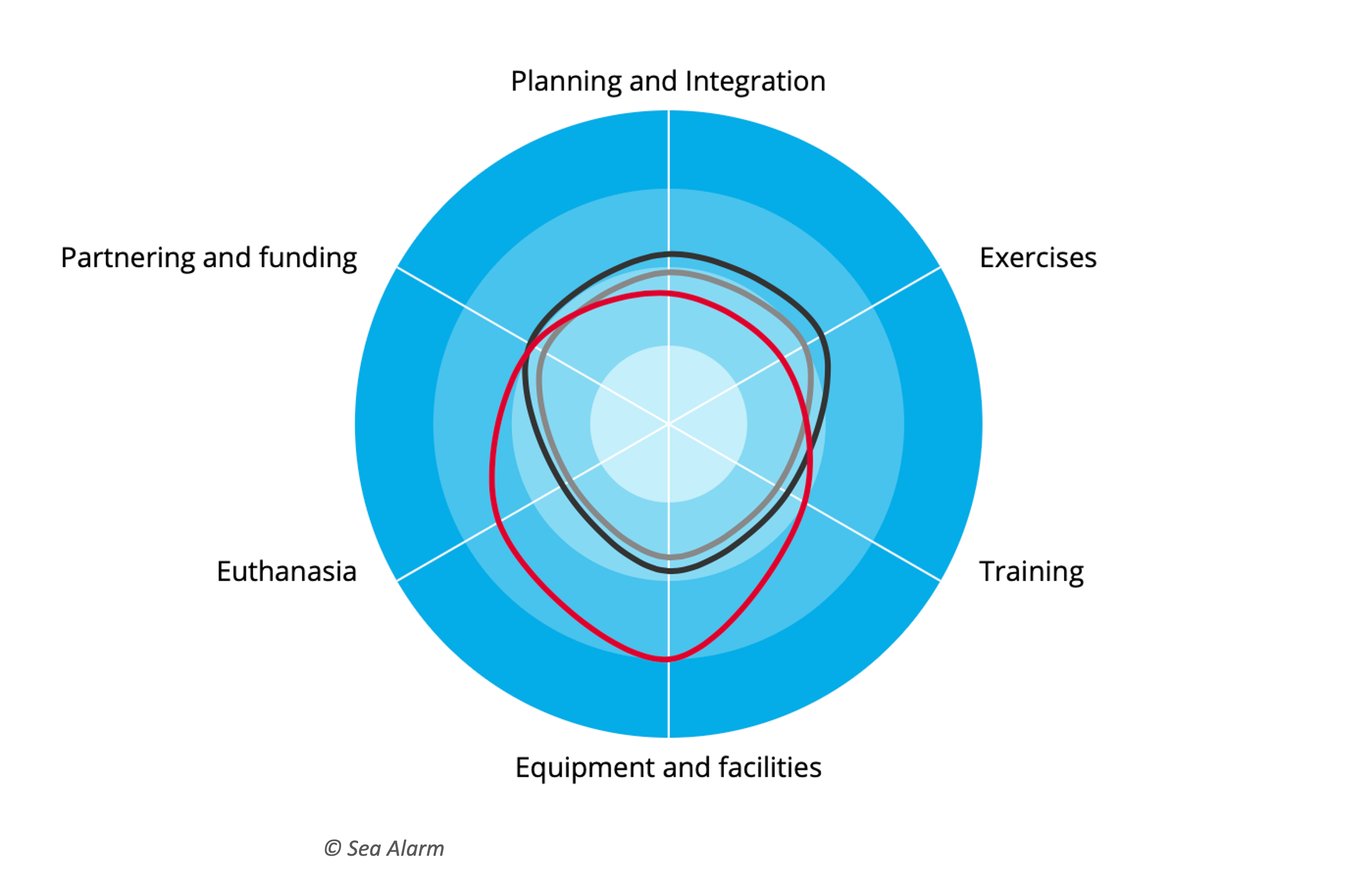Wildlife preparedness event in Germany
 Sea Alarm’s Hugo Nijkamp attended a workshop for authority representatives on the existing arrangements for oiled wildlife response preparedness.
Sea Alarm’s Hugo Nijkamp attended a workshop for authority representatives on the existing arrangements for oiled wildlife response preparedness.
The meeting, held over two days in Cuxhaven in November, was organized by the Central Command for Maritime Emergencies (CCME) and was dedicated to bringing authority representatives from federal and regional levels up to speed on existing arrangements for oiled wildlife response. Five of the German federal states border the sea and could be affected by oil spills caused by maritime accidents. The CCME has taken the responsibility to ensure that oiled wildlife response preparedness is on the radar of each of these federal states, and to encourage leading authorities to have dedicated plans and resources in place, well integrated with other elements of oil spill response preparedness.
The meeting included a series of lectures from different contributors. Some regional authorities presented their current state of the art in wildlife response preparedness. A population biologist described the wildlife resources at risk in the German section of the North and the Wadden Seas. ITOPF provided oil spill case histories from across the globe in which wildlife response developed as a major issue. ProBird, Germany’s own oiled wildlife response organisation, delivered a lecture on the effects of oil on seabirds. Together with ProBird, Sea Alarm presented lectures on international lessons learned and the integrated management of a large wildlife incident.
The workshop offered a wealth of opportunity for questions and discussions. One of the major outcomes from the event was clarity about the different roles that authorities would play in the management of an integrated wildlife response. Positive responses from the audience included requests to the CCME and other federal agencies to continue playing a facilitating role to help the federal German states further increase their individual and collective state of readiness in this field.


